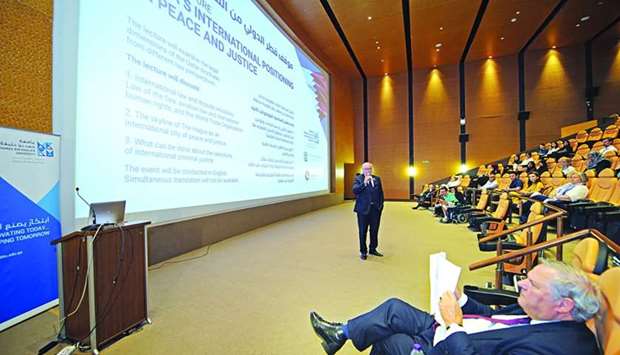The lecture was one of several events that aim to provide community members with an open space for constructive dialogue and discussion on the blockade of Qatar. By facilitating such discussions, HBKU is actively contributing to developing thought leadership and fulfilling its mission as a leading global university that values the pursuit of truth and knowledge.
Monday’s event was held in conjunction with The Hague Institute for Global Justice to examine various legal dimensions of the blockade. Steven van Hoogstraten, interim CEO and Dr Stephen J Rapp, non-resident fellow from The Hague Institute for Global Justice were invited to provide their expertise on international law and dispute resolution, Law of the Sea, aviation law, and international human rights.
On October 17, HBKU is inviting Dr Hassan Hakimian, director of the London Middle East Institute and visiting professor at HBKU’s College of Humanities and Social Sciences, to give a lecture titled “Do Economic Sanctions Work?” at the Qatar National Convention Centre.
The lecture will highlight the historical experiences of this region when it comes to economic sanctions, and will provide analysis to reflect critically on recent developments. Dr Hakimian will also spend time examining the possible motivations behind the adopted measures by the blockading countries, and will offer his views on the effectiveness of such sanctions in the Qatari context.
On October 23, a panel discussion on the impact and prospects for Qatar after the blockade will be held by HBKU’s College of Islamic Studies. The panelists will discuss the dynamics of the blockade against Qatar by investigating its political, economic, legal, and social aspects to provide audiences with a comprehensive picture of the current situation and potential policy outcomes for the future.

HBKU lecture on the illegal blockade.
Hamad Bin Khalifa University (HBKU) hosted a public lecture titled “Qatar’s International Positioning on Peace and Justice” on Monday.
